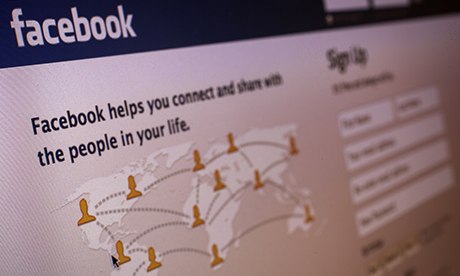
So now we know. In Facebook's world, a beheading is OK but an exposed nipple is not. The social media behemoth has decided that a 13-year-old – for that is the permitted minimum age of a Facebook user – can watch a video of a decapitation, but must be protected from the potentially scarring effects of seeing a breastfeeding mother and child briefly pause for breath.
How else to read its latest decision to lift restrictions in place since May and allow users once again to post head-chopping videos, even as it maintains its ban on images of the most mild form of naturally occurring nudity? ("Photos that show a fully exposed breast where the child is not actively engaged in nursing do violate the Facebook terms" is how the site puts it.)
The absurdity of that position shows just how confused even the masters of the online universe become when confronted with the perennial dilemmas of free expression. The simplest, most logically consistent position would be one of absolute free speech, in which Facebook would allow everything within the law. Beheading videos would take their place alongside porn in a great, unfettered free-for-all.
But that's not what Facebook does. It knows that if it did, it would lose vast chunks of its huge, global customer base: parents especially wouldn't let their kids go anywhere near it. So it imposes rules and "community standards," meaning it allows some things and forbids others.
Once it's made that move, deciding that there are lines that should not be crossed, then Facebook is in the business of deciding where to draw those lines. In this case, it has got the decision spectacularly wrong.
The lunacy of allowing beheadings while banning nursing mothers would be bad enough. But Facebook has tied itself up in further knots of illogic by explaining that such snuff videos are OK if they are posted to "condemn" the killing rather than glorify it. But that distinction is not always so obvious. A bit of lip-service condemnation would not be hard to construct for someone whose motive was altogether less benign. Besides, isn't it possible to condemn a decapitation without actually showing it? When the Wall Street Journal reporter Daniel Pearl was brutally murdered that way in 2002, news media around the world managed to denounce it without airing the video.
Which brings us to the nub of the matter. Facebook and the other social media giants are reluctant to be thought of as akin to news organisations or even publishers. They want to be seen as something looser and vaguer, a mere arena for others. There are good reasons for that: social media are indeed different.
But there is a less noble motive behind that reluctance too. Publishers are responsible for the content they publish and Facebook and the others don't want that level of responsibility: for one thing, maintaining standards requires people, which costs money.
But it's getting harder and harder to maintain the pretence that Facebook doesn't make editorial judgments, including ones that have serious consequences. It does – and it's just made a very bad one.

